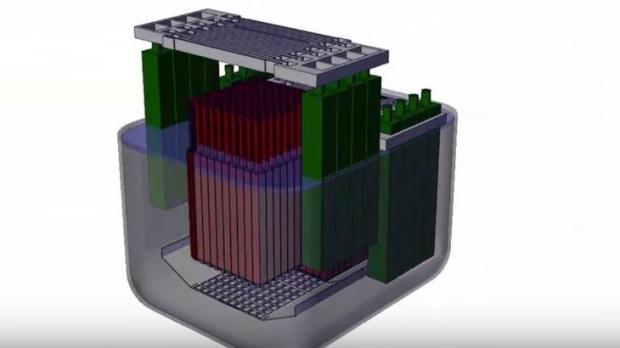
Breaking News
 Panic sets in as revealing map shows only SEVEN metro areas across the entire United States...
Panic sets in as revealing map shows only SEVEN metro areas across the entire United States...
 White House Amplifies Shocking Claims Of US Super Soldiers Deployed In Maduro Raid
White House Amplifies Shocking Claims Of US Super Soldiers Deployed In Maduro Raid
 Contrasting Chinese and US power plays in Venezuela and beyond
Contrasting Chinese and US power plays in Venezuela and beyond
 Why You Shouldn't Believe In A Full-Spectrum Crash
Why You Shouldn't Believe In A Full-Spectrum Crash
Top Tech News
 Superheat Unveils the H1: A Revolutionary Bitcoin-Mining Water Heater at CES 2026
Superheat Unveils the H1: A Revolutionary Bitcoin-Mining Water Heater at CES 2026
 World's most powerful hypergravity machine is 1,900X stronger than Earth
World's most powerful hypergravity machine is 1,900X stronger than Earth
 New battery idea gets lots of power out of unusual sulfur chemistry
New battery idea gets lots of power out of unusual sulfur chemistry
 Anti-Aging Drug Regrows Knee Cartilage in Major Breakthrough That Could End Knee Replacements
Anti-Aging Drug Regrows Knee Cartilage in Major Breakthrough That Could End Knee Replacements
 Scientists say recent advances in Quantum Entanglement...
Scientists say recent advances in Quantum Entanglement...
 Solid-State Batteries Are In 'Trailblazer' Mode. What's Holding Them Up?
Solid-State Batteries Are In 'Trailblazer' Mode. What's Holding Them Up?
 US Farmers Began Using Chemical Fertilizer After WW2. Comfrey Is a Natural Super Fertilizer
US Farmers Began Using Chemical Fertilizer After WW2. Comfrey Is a Natural Super Fertilizer
 Kawasaki's four-legged robot-horse vehicle is going into production
Kawasaki's four-legged robot-horse vehicle is going into production
 The First Production All-Solid-State Battery Is Here, And It Promises 5-Minute Charging
The First Production All-Solid-State Battery Is Here, And It Promises 5-Minute Charging
Moltex Nuclear Would Work in a World With Abundant Solar Energy

SSR (Stable Salt Reactor) will meet the cost objective, comfortably, through intrinsic safety and simplicity.
From over 90 applications, New Brunswick Power selected the Moltex Stable Salt Reactor – Wasteburner (SSR-W) as one of two reactors it intends to build at the Point Lepreau site. Moltex has completed the submission to Vendor Design Review phase 1 (VDR1) with the Canadian Nuclear Safety Commission, Moltex will soon move on to VDR2 and then to the application for the necessary licenses. Moltex is on track to having an operational reactor by 2030.
In November, 2020, Moltex Energy signed a Memorandum of Understanding (MOU) with NB Power and ARC Canada to work collaboratively to find synergies by establishing a small modular reactor vendor cluster in New Brunswick.
Moltex is developing a 300 MW reactor that is fueled by recycled nuclear waste, contributing to clean energy targets and reducing legacy waste. In tandem, it is developing energy storage technology so its reactor can be used as a 900 MW peaking plant, to complement intermittent renewable energy sources.
"Static" molten salts in fuel pins was rejected by ORNL because convection of fluids would be unreliable in an aircraft due to gravity's impact on reactor being variable during flight.

 Storage doesn't get much cheaper than this
Storage doesn't get much cheaper than this

